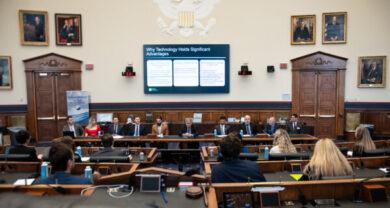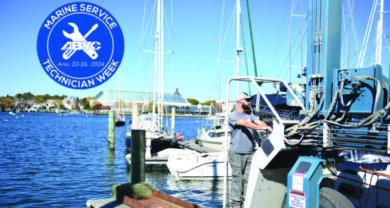Congressional Boating Caucus says ‘yes’ for Congress to pass WRDA Act
For the recreational boater, waterway access, safe navigation and clean waters are essential. Today on Capitol Hill, recreational boating and fishing industries will hold a Congressional Boating Caucus briefing and panel discussion on the need for Congress to reauthorize the Water Resource Development Act (WRDA). The legislation provides funding for U.S. Army Corps of Engineers ecosystem restoration such as the Everglades, fisheries improvements, flood protection efforts and projects that support waterway access.
The bipartisan bill has strong support in the Senate and leaders are confident the bill has enough votes behind it to pass the House of Representatives.
The Congressional Boating Caucus is an informal bipartisan group of U.S. Senators and Representatives formed in 1989 to advocate for the interests of the recreational boating industry. Today’s panelists include Jim Sartucci of law firm K&L Gates and retired U.S. Coast Guard and former Senate Commerce Committee staff member; Kellie Ralston of the American Sportfishing Association and Keep Florida Fishing; and James Erskine of the Florida Fish & Wildlife Commission.
The briefing is co-hosted by the National Marine Manufacturers Association (NMMA), Boat Owners Association of The United States (BoatUS), Marine Retailers Association of America (MRAA), American Sportfishing Association (ASA), Center for Coastal Conservation (CCC), Coastal Conservation Association of Florida and Theodore Roosevelt Conservation Partnership.
“Today’s briefing is very timely as the Senate is in the midst of floor deliberations on the WRDA legislation,” said NMMA Vice President of Federal and Legal Affairs Nicole Vasilaros. “We will be looking at the bill’s impact on existing and future water quality projects to ensure public access to our nation’s waterways as well as the ongoing Everglades restoration.”
As the boat owners advocate, BoatUS Government Affairs Senior Program Manager David Kennedy says the WRDA bill affects thousands of recreational boaters. “Without WRDA’s critical funding, America’s recreational boaters could find some waterways too shallow or dangerous to safely navigate or small harbors potentially off limits if funding for dredging is not addressed.”




